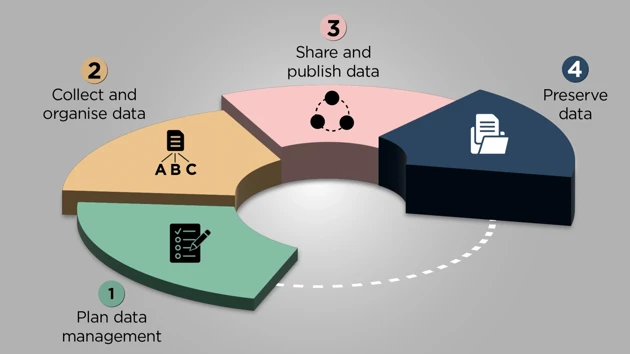Manage research data
Research data are all data that you produce or collect within your research, including data from measurements, statistics or material from interviews. You need to manage research data in every stage of the research process. These pages provide information on how to plan, organise, make accessible and preserve data but also on legal aspects of research data.
